A routine arrival on Thursday turned into an unexpected ordeal for passengers on two mainland/Hawaii flights. An airliner emergency slide was accidentally deployed at the gate, snowballing to force two cancellations and leaving travelers scrambling for alternative transportation to and from the islands.
Not only was Delta flight 1429 from Seattle to Honolulu canceled on Thursday night, but also Delta 352 on Friday morning from Honolulu to Seattle since there was no plane.
The incident, which unfolded as the aircraft arrived at the gate in Seattle in preparation for its subsequent Hawaii departure, has sparked discussion across social media and raised questions about operational procedures and other potential challenges.
How the Hawaii flight mishap happened.
According to reports circulating online and on X, the mishap likely occurred when crew members failed to disarm the emergency slide before opening the aircraft door. This oversight led to the costly deployment of the slide at the gate, which required extensive inspection and replacement procedures before the aircraft could be cleared again for flight.
Flight disruptions of this nature can lead to significant delays and cancellations, as spare aircraft are not always readily available—especially for long-haul ETOPS routes like those to Hawaii. Passengers affected by the incident were left seeking rebooking options and assistance, in-person and online, highlighting the challenges of sudden setbacks on Hawaii flights.
The aircraft was a Boeing 757-200.
At first, the aircraft with registration number N77D7 was reported as a Boeing 767. FlightAware has confirmed, however, that it actually was a 26 year old 757-200.
Some attributed the problem to human error, while others suggested potential design quirks that make it easier to trigger the deployment mechanism inadvertently. That isn’t yet clear. Past incidents with similar issues have drawn repeated attention to the importance of rigorous cross-checking protocols by flight crews to prevent such costly mistakes.
The estimated financial impact of an accidental slide deployment can reach the five-figure range, making it a costly mistake not just in terms of operational disruption and delays but also in terms of unnecessary airline expenses. Furthermore, such incidents can pose safety risks if ground personnel or passengers are in the vicinity of the door when the slide inflates.
What it means to “arm or disarm the door.”
The emergency slide system on aircraft is designed with an arming mechanism that prepares the slide for automatic deployment when the door is opened.
Before departure, flight attendants arm the slides by engaging a lever that connects the slide to the door, ensuring it will deploy in an emergency. Upon arrival, the slide must be disarmed by disengaging this mechanism, separating the slide from the door frame to allow for safe operation.
This process requires careful attention, as the controls for arming and disarming are often located in close proximity, increasing the potential for human error if procedures are not strictly followed.
What this means for Hawaii travelers.
Cancellations due to mechanical or operational issues can happen without warning, reinforcing the importance of flexible travel and backup plans while understanding airline policies for rebooking and compensation. Passengers are often re-accommodated on later flights, but with limited availability to the islands, alternatives may be scarce during some travel periods, and an overnight stay may be required.
We recommend travel insurance to mitigate the financial impact of last-minute disruptions. Airlines typically offer meal and hotel vouchers in cases of lengthy delays, but policies can vary based on the circumstances of the cancellation.
Social media reaction and lessons learned.
The incident has generated a wave of reactions online, with some users humorously commenting on the situation. In contrast, others have pointed out the need for better training and stricter adherence to safety protocols. Discussions have also centered on the broader implications of aging aircraft fleets and whether design improvements could help reduce the frequency of such mishaps.
If you were on either of these flights, we would like to hear how the delay impacted you.
Image from X.
Get Breaking Hawaii Travel News
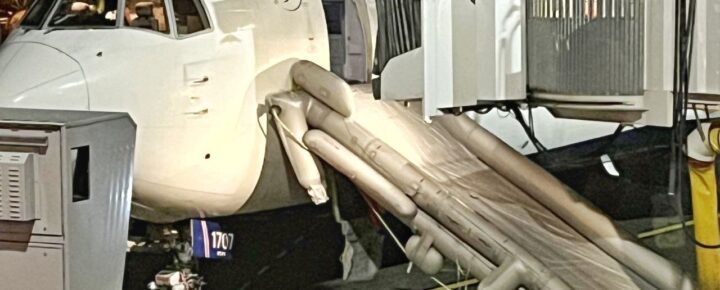
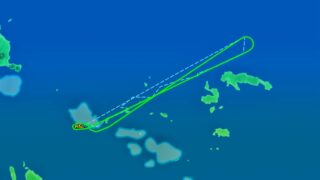

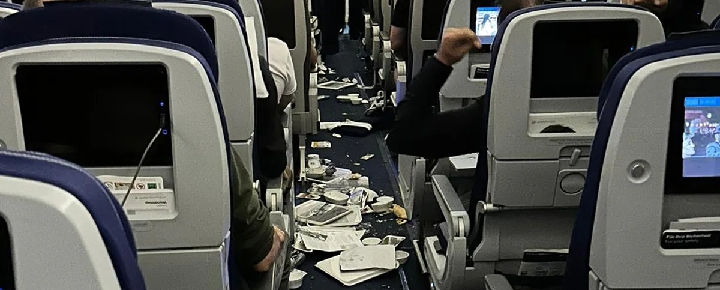
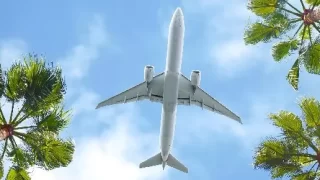
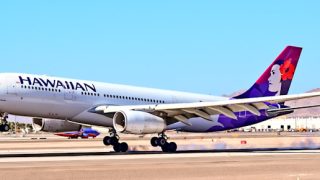
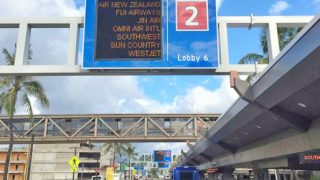
Irregardless of what door they are at if the lead FA says FA disarm the doors over the PA and cross check that is all doors. The FA’s call or gets a thumbs up that there doors are either arm or disarm. Sounds like they got distracted and did not check the door before opening. However if there were two FA the other FA should have cross check the door, yikes. For sure they got drug tested and reprimand.
I hope that FA keeps there job because Delta is non union and there is no protection for a mistake.
Unfortunately, our arrival procedures are very regimented for disarming so any distractions or abnormal arrival situations can distract us, and, unfortunately, these slide deployments can and do happen.
I flew the 757-200 many times previously. Typically, the boarding and deplaning occurs thru the second door. So, when in this case at OGG the DL 757 could not chalk in closer to the terminal, the deplaning had to occur at the first door at the very front of the plane. The FA working this position will as is procedure disarm both doors on the right and left of plane. But, not typical is the deplaning thru that first door, so in defense of the one FA located at those exits, they had to be hyper aware and prepared to open the first door for deplaning. Typically that door would never be opened as the deplaning is further back at the second door. We are drilled to cross check ourselves, but unfortunately in this case that didn’t happen.
I am highly suspect this was a direct result of inattention and mistakes on the part of the Flight Attendant’s (F/A) when opening the door rather than “potential design quirks” which is another way of saying: “I didn’t do anything wrong … !!! ”
And that’s baloney, to put it mildly …
We had that happen once on the B-747 in Frankfurt, Germany while on a fuel stop when flying troops to the Gulf in preparation for Desert Storm …
It was most definitely a “new” F/A error — i.e., human error — and it cost us a day to get it checked out and put back together.
Hey !!! The boys were just going to war !! What does one day matter, yes ??
Auē … I guarantee you that Desert Storm wasn’t the only “storm” going down that day …